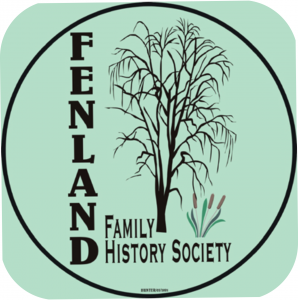Wim Zwalf should have been our speaker after our AGM but the birth of a new granddaughter called himself & his wife away, to look after the family.
As the Society was aware that this occasion may coincide with his talk Bridget had an alternative speaker on standby.
A sharp knocking drew our attention to the speaker’s table & there in the guise of a teacher was Maureen Nichols.
“Good evening children” said teacher. “Good evening Mrs Nichols” we replied in the familiar sing song way of children. ‘Now sit up straight & no talking, we are going to talk about education!”
Maureen stated off in the 18th century when teaching was done in Latin grammar & only boys attended school & payment was required.
Universities were established with Oxford being the first, followed by Cambridge.
King Edward V1 established three Grammar schools free to those who could not pay.
In 1780 Robert Bailes commenced a Sunday school in Gloucester where the pupils attended church from 10am to 12 noon for lessons & in the afternoon repeated the Catechism until 5pm.
Maureen then spoke of Ragged schools which took in destitute boys & taught them a trade for free, although sometimes a few pennies were found towards the cost by the family. Later schools also admitted girls.
There were Dame schools which Maureen described more as a childminding service. The older pupils taught the younger ones &, in some cases these pupil teachers went on to become teachers. Red brick schools, appeared first in Liverpool, so called for the colour of the building bricks, & not thought of too highly as the name was often used in a derogatory term.
In 1880 the Law stated that all children between the ages of 5 to 10 years must attend school to be taught the basics of reading, writing & arithmetic & school boards were set up. In the 19th century. The University college of London was established in 1826 & Kings college in Durham.
In 1944 the Tripartite system was established, the grammar schools where academic subjects were taught, secondary schools where pupils were taught practical skills & secondary technical schools where pupils were taught scientific & technical skills .
Maureen mentioned special places of education such as Harrow where the speciality was sport.
There are school records such as admission lists, names of teachers, attendance records & punishment books available at local museums & libraries & some can be found in Record Offices.
At the end of Maureen’s talk we ‘children’ were invited to tell our own school day stories. These were many & varied, from having blackboard rubbers thrown at us, being rapped across the knuckles with a ruler, suffering the cane, & being made to stand in the corner.
It was also mentioned that 2 weeks off school were given to children, legally, so that they could help with the potato & strawberry harvesting.
Maureen’s talk took us down memory lane & she is awarded 10 out of 10 & a gold star!
Our speaker for October is Vicky Howling .
Her talk is called – My Family & Barroway Drove.
June 2024 meeting: Sue Paul – My ancestor was a pirate (or Pirates of the Caribbean – the sequel)
I’m sure we can all visualise the stereotypical pirate (peg-leg, eye-patch and parrot 😊) and probably think we don’t have any in our ancestry. However,
